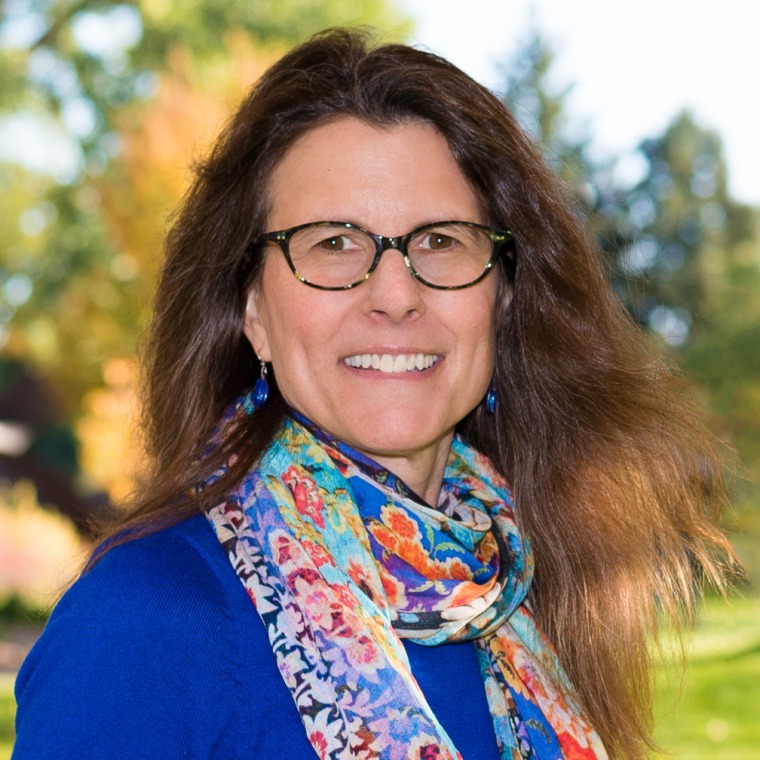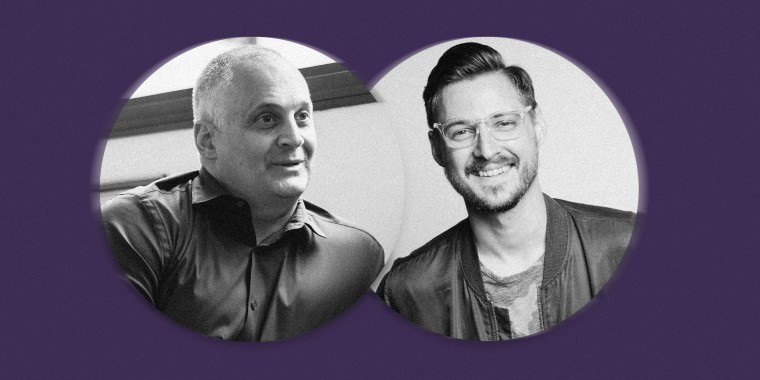Psychotherapist Stacey Freedenthal had helped many people overcome suicidal thoughts before she attempted to take her own life.
Freedenthal, in her 20s at the time and pursuing her master's degree in social work, had been a volunteer at a suicide prevention hotline. When callers phoned her in crisis, she used her training and education to help.

But at the same time, the depression she had struggled with herself on-and-off for more than a decade was worsening. The advice she gave to others contemplating ending their lives didn't seem applicable to her. One night in January 1996, six months after she finished her volunteer position at the hotline, she tried to kill herself.
"Nobody is immune from suicide," including mental health professionals, said Freedenthal, who is now an associate professor at the University of Denver graduate school of social work and the creator of SpeakingofSuicide.com, a suicide prevention website.
"The message can be good and true and inspirational, but that doesn't mean the messenger is immune to the same challenges as everybody else."
This week, two suicides highlighted that grim reality: The suicides of Gregory Eells, the head of counseling and psychological services at the University of Pennsylvania, and Jarrid Wilson, a California megachurch pastor who was an outspoken mental health advocate.
The two worked in different circles and did not appear to have any connection to each other, but their deaths left many asking the same question: How could individuals who did so much for the mental health community not have gotten the help they needed themselves?
"The thing about depression and anxiety, and other mental illnesses or psychiatric conditions, is it typically involves our brains lying to ourselves," said Julie Cerel, a professor at the University of Kentucky College of Social Work and a past president of the American Association of Suicidology.
"When depression is telling you you're not worthy, even if we're trained to combat those false beliefs in others, it's really hard to be able to stop and do that for yourself — especially if you've been doing that for other people all day."
"When depression is telling you you're not worthy, even if we're trained to combat those false beliefs in others, it's really hard to be able to stop and do that for yourself — especially if you've been doing that for other people all day."
In the United States, suicide is on the rise. Experts say multiple factors lead to someone taking their own life and say suicide can happen to anyone — even the famous and successful, like the celebrities Kate Spade and Anthony Bourdain.
But many say a stigma still exists against seeking help for suicidal thoughts in a place where one would least expect it: in the mental health professional community itself.
"There may be for some people the sense of, 'I'm a counselor, I know what to do, I help other people all day long, I know how to help myself,'" said Lynn Linde, chief knowledge and learning officer for the American Counseling Association, a not-for-profit dedicated to the counseling profession. "Counselors are so busy giving to others that they don't always take care of themselves. They may minimize their own issues."
There can be fear of professional repercussions too, Freedenthal said. Mental health professionals may be seeing a therapist who knows people in the same professional circles as they do, and "even though there's rules of confidentiality, there's still fear of that being violated."
"They also may feel that they're expected to be stronger," Freedenthal said.
While Eells and Wilson were not working as mental health counselors, it was not clear whether they had sought professional help in the weeks before their deaths or what led to their suicides.
Eells had been at the University of Pennsylvania for six months and had found the job more difficult than he expected, his mother told The Philadelphia Inquirer after his death. The job kept him hundreds of miles away from his wife and family, who were still living in Ithaca, New York, where he had previously worked at Cornell University.
Wilson, a pastor at Harvest Christian Fellowship Church who had founded a Christian organization to help those with mental health and substance abuse, had been open about a longstanding battle with depression. Shortly before his death, Wilson tweeted: “Loving Jesus doesn’t always cure suicidal thoughts. Loving Jesus doesn't always cure depression. ... But that doesn't mean Jesus doesn't offer us companionship and comfort."
Jared Pingleton, director of mental health care and ministry for the American Association of Christian Counselors, said many pastors carry the burdens of those in their churches and ignore their own need for self-care.
"I think many times, pastors feel guilty to take care of their own needs," he said. "It's an occupational hazard. By nature, that profession is very, very lonely, very isolated."
He encouraged pastors to call a toll-free pastoral helpline he created five years ago for confidential Christian counseling.
All the experts said regardless of what position a mental health advocate or professional is in, taking care of his or her own mental health is critical to helping others.
Freedenthal added that Eels' and Wilson's deaths shouldn't detract from suicide prevention.
"It just shows to me how much more we need to fight to learn how to better help people and how to make resources available. That's what's hard here. Gregory Eels and Jarrid Wilson, they knew about resources," she said. "When something like this happens, it humbles me that we're up against something really big, and we need to work harder."
If you or someone you know is in crisis, call the National Suicide Prevention Lifeline at 800-273-8255, text HOME to 741741 or visit SpeakingOfSuicide.com/resources for additional resources.
CORRECTION (Sept. 11, 2019, 7:30 p.m. ET) A previous version of this article misstated the degree that Stacey Freedenthal was pursuing. It was a master’s in social work, not psychology.


